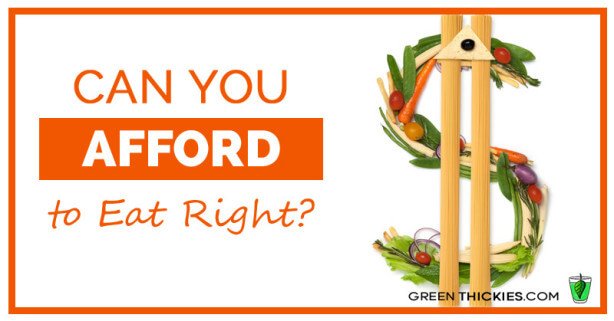
There may be one reason why many Americans aren’t eating healthy that has nothing to do with will power or flavor: it’s too expensive.
Millions of Americans simply can’t afford to eat healthy, according to researchers at the University of Washington in the first study of its kind.
They compared prices of healthy foods (rich in nutrients and low in calories, such as fresh vegetables, fish, lean meats and whole grains) with high-calorie junk foods.
They found that prices for healthy food jumped nearly 20 percent over a two-year period, compared to a modest 5 percent increase in the overall food price inflation. Prices of high-calorie foods, meanwhile, remained about the same, and in some cases even dropped.
** Please note that this post may contain affiliate links which means that I can receive a small payment if you make a purchase through my links.
Why are healthy food prices so high?
Everything from agricultural policies to farm subsidies to the rising cost of energy have been blamed, but the researchers believe sugar — which is cheap and high in empty calories — gets top billing.
However, even foods that are currently cheap are expected to rise dramatically in price in the near future, the researchers said. They pointed to three things they believe people will need to eat well in the future: education, money and time.
“If you have all three, you‘re home free. If you have two out of three, you can manage. But if you have only one out of the three, or zero of the three, you are pretty much screwed. And a lot of low-income people have zero out of three,” said study author Adam Drewnowsky, director of the Center for Public Health Nutrition at the University of Washington.
There are clearly many challenges to eat well if you are on a fixed budget or do not have access to healthy food sources (as is the case in many inner cities). What you need is an extreme shift in values so that even if you are on the lowest of budgets you can have access to affordable, healthy foods instead of junk foods.
As the system is currently configured, however, many people with low incomes end up being overweight, yet very malnourished.
I agree with the study’s author that sugar is one of the major culprits here. Not only issugar one of the biggest enemies you face in your pursuit of a healthy eating program, it appears in nearly ALL processed foods and drinks — even things you wouldn’t think would be sweetened, like canned beans, mayonnaise, and pickles — making it virtually impossible to avoid. Yet, because it (along with high-fructose corn syrup) is inexpensive, most everyone can afford to purchase the foods that contain it.
What many people cannot afford, however, are the free-range meats, the raw dairy products, and the organic, locally grown veggies that will keep them healthy.
But there is a light at the end of the tunnel. As the researchers above pointed out, if you have education and time, you can overcome the hurdle of not having a lot of money.
Getting the Most Nutritional Bang for Your Buck
Those of you reading this right now are fortunate enough to have one piece of the puzzle: education. You already know, or are learning, which foods you need to stay healthy.
You also know that taking time to prepare your meals is a priority that you must find time for — even if it is once a week on a Sunday, when you cook meals for the week and freeze them for your weeknight meals after work.
You see, eating healthy does not have to be “all or nothing.”
You must make decisions to get the most “nutritional bang for your buck” when it comes to your food money. I’m the first to admit that this is not always easy, but your efforts will payoff in the form of your future good health.
Here are the 14 top tips you need to know to find healthy food, even on a tight budget:
1. Choose local foods over organic foods.
2. If all that’s available or affordable is fresh, conventionally grown produce, buy it, wash it well at home, and eat it.
3. Look for local farms and food coops offering raw dairy products, eggs, produce, and grass-fed meat. This will allow you to cut out the middleman and save money. Buying in large quantities, such as a side of grass-fed beef, can also save you money in the long run as long as you have room to freeze it (and you consume it before it goes bad).
4. Skip prepared or pre-cut foods, which can cost up to double the amount as the unprepared versions.
5. Plan your meals ahead of time (including cooking large batches and freezing some for later) so you don’t splurge on expensive, unhealthy fast-food at the last minute.
6. Pass on junk foods like potato chips, soda, cookies, candy, and other snacks. These are a complete waste of money.
7. Buy lots of fresh veggies, they’re usually less expensive than canned versions (just make sure you use them before they go bad).
8. Only buy what you need. Keep track of what’s in your pantry so you don’t double-up on foods unnecessarily.
9. Clip coupons and use them when you can (but don’t buy something unhealthy just because it’s on sale).
10. Watch the register when you check out of the grocery store. They often ring up wrong prices, at your expense.
11. Shop with a calculator so you can determine if it’s really a better deal to buy something in bulk.
12. Watch weekly specials, and be aware of what’s really a good price. You can often find organic produce on sale for less than conventional produce if you know what prices to watch for.
13. If you have the space, grow your own fresh veggies such as greens, broccoli, tomatoes, cucumbers, string beans, etc.
14. Remember this rule of thumb: Fresh food is always better than frozen, but frozen is better than canned.
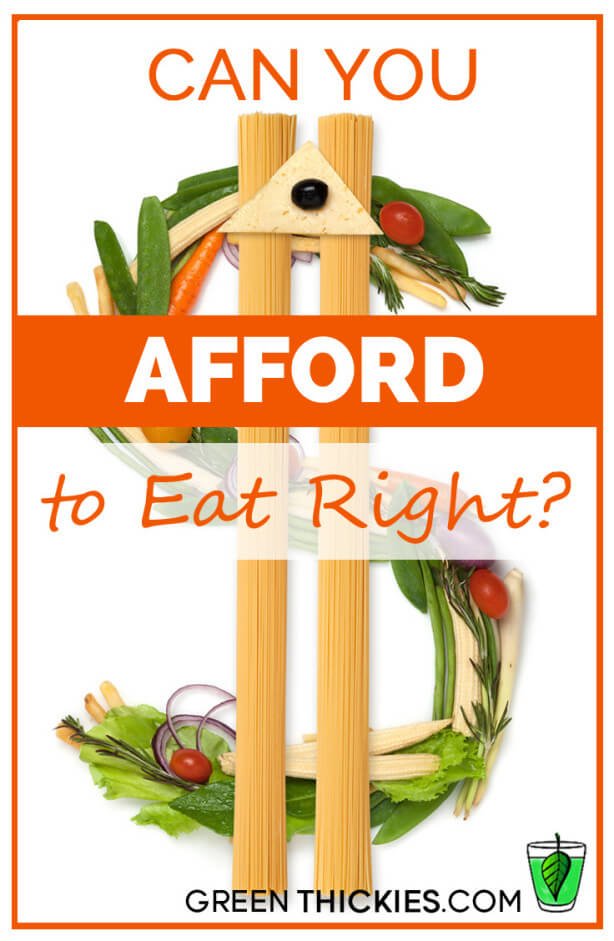
Are you struggling to lose weight and keep it off?
Are you feeling run down and are struggling with ever increasing health problems?
Green Thickies new 7 Day Detox will help you drop a dress size, improve your skin, your energy will soar and you are going to be so in control and proud of yourself.
You won't go hungry on this diet ... And better yet - it actually requires minimal time in the kitchen.
Get results like this...
Hi Katherine,I just wanted to tell you I completed the 7 day detox and I feel so great.
I have lost 6lbs, do not feel like I need more my morning coffee, the flushing of my facial skin from rosacea has dramatically reduced and I am so excited to wake up each morning and make a green thickie for breakfast!!
I am a stay at-home, homeschooling momma of 3 littles and at times so busy I would forget to feed myself!
I would go most of the day without eating and then snack on random things.
I gained 60 pounds the last 6 years during pregnancy.
I have lost 30lbs but recently plateaued and have felt so frustrated.
I’ve tried everything from paleo and keto to the point where I didn’t know what to eat or how much and felt like even eating fruit was bad for me which thankfully it’s not!
What a game changer for me. Thank you for sharing a simple but effective program.
I’m so excited to continue another week with this plan! Thankful Stephanie
Use this special voucher to get $10 off: WEBSITE (Add discount code WEBSITE at the checkout)
Click here to get started
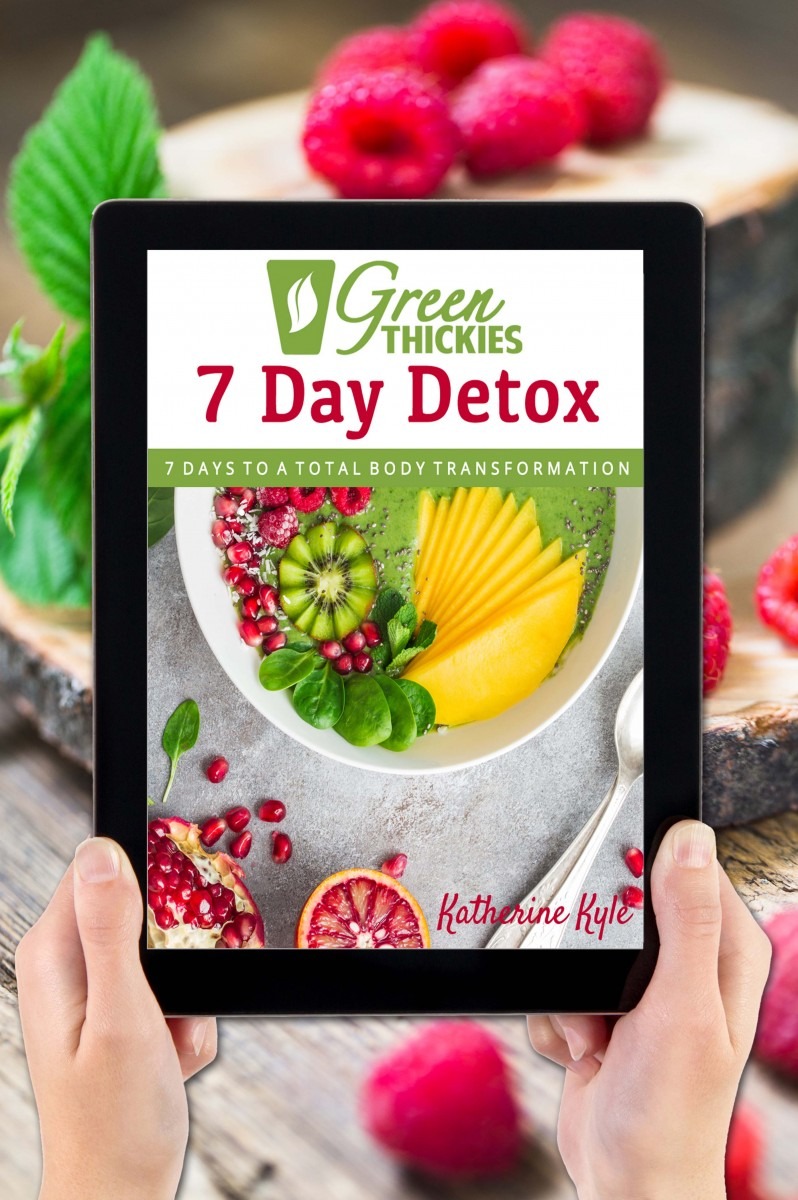
- How To Use Bananas For Sleep (Bedtime Banana Elixir Recipe) - January 14, 2022
- Why You Can’t Eat Your 5 A Day (And The EASY SOLUTION) - November 29, 2021
- 10 Second Banana Ice Cream Recipe (Using Only Bananas) - November 1, 2020
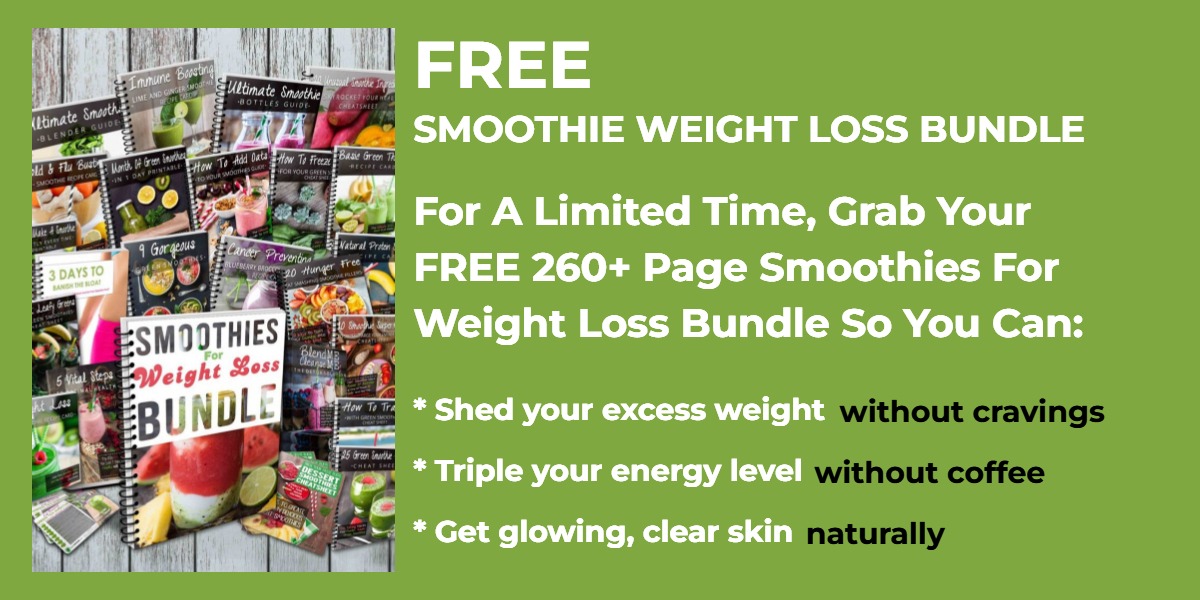

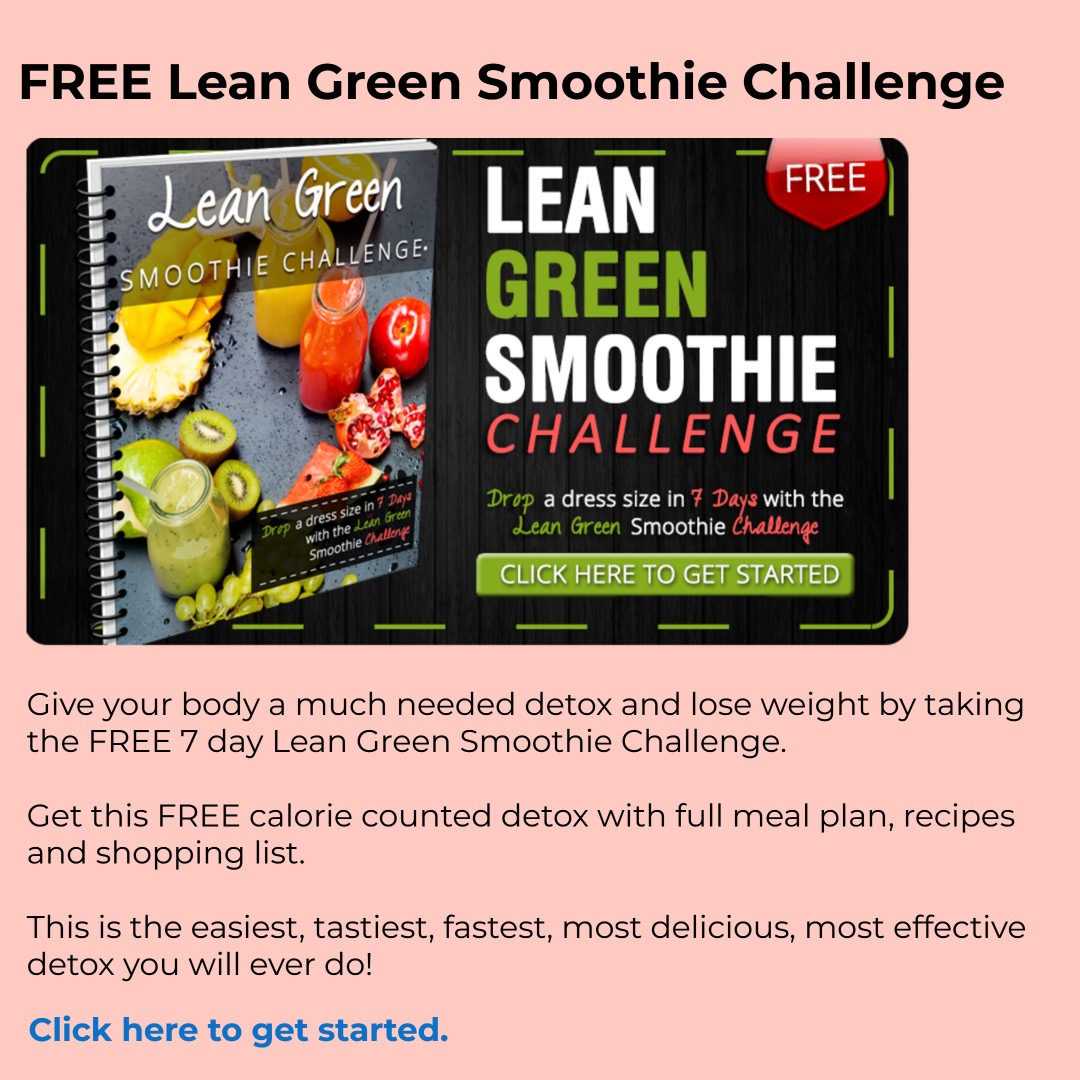
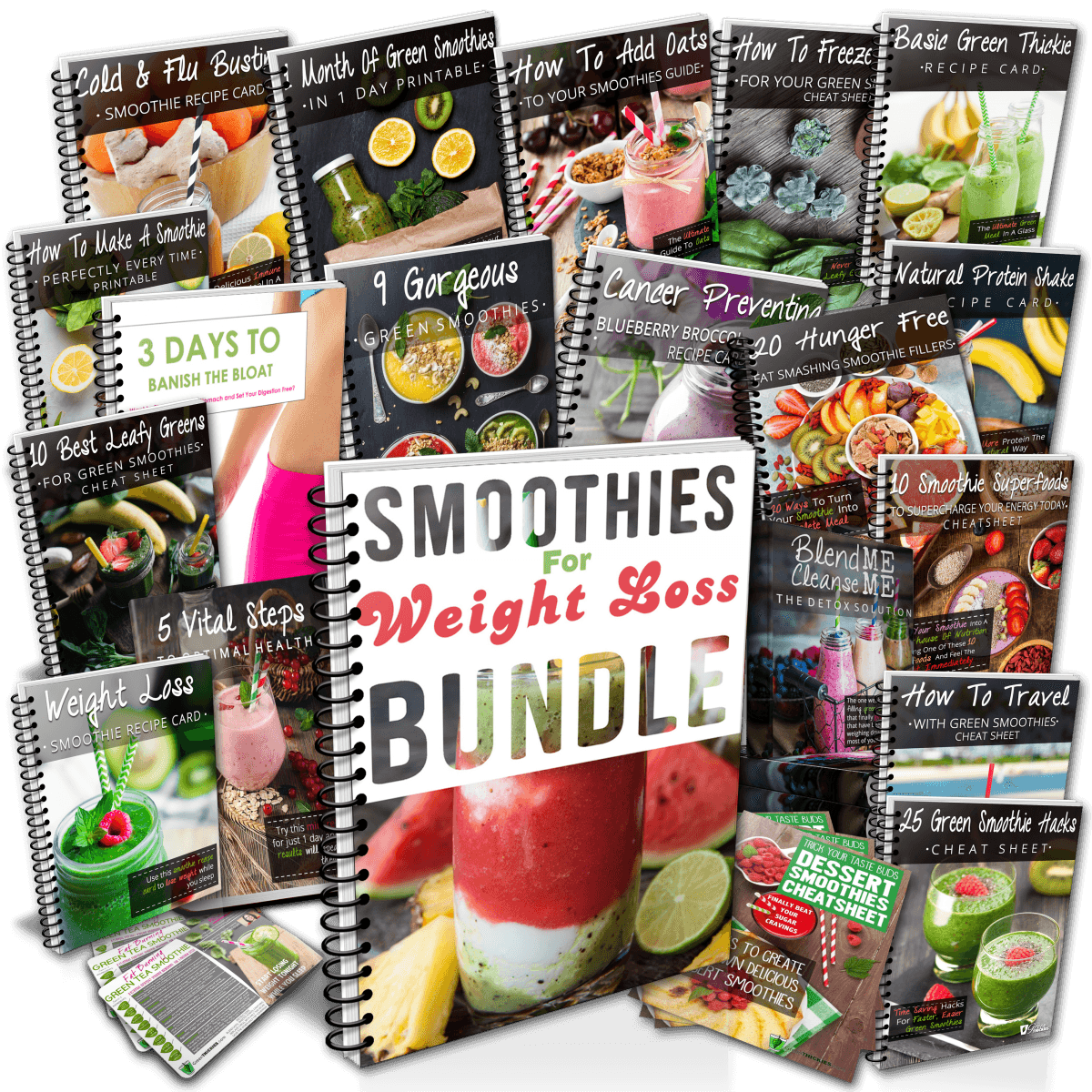

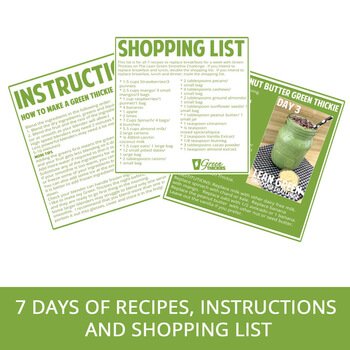
 Hi, I’m Katherine. I lost 56 pounds and recovered from Chronic Fatigue Syndrome by replacing meals with Green Thickies – my original smoothie concept.
Hi, I’m Katherine. I lost 56 pounds and recovered from Chronic Fatigue Syndrome by replacing meals with Green Thickies – my original smoothie concept.
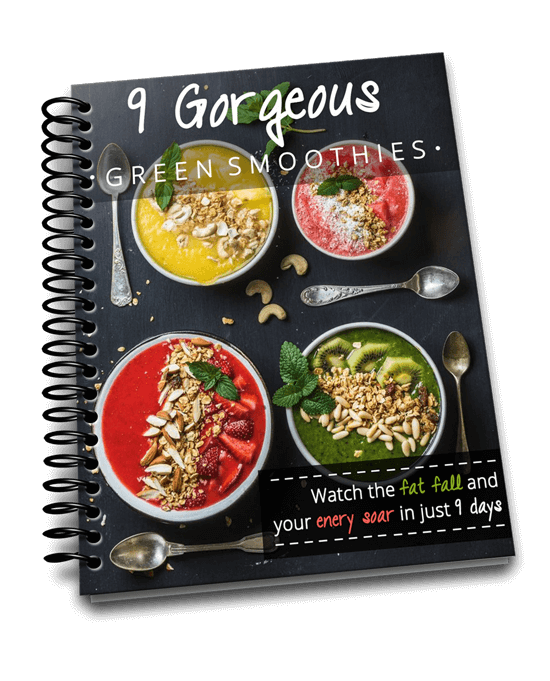
Leave a Reply